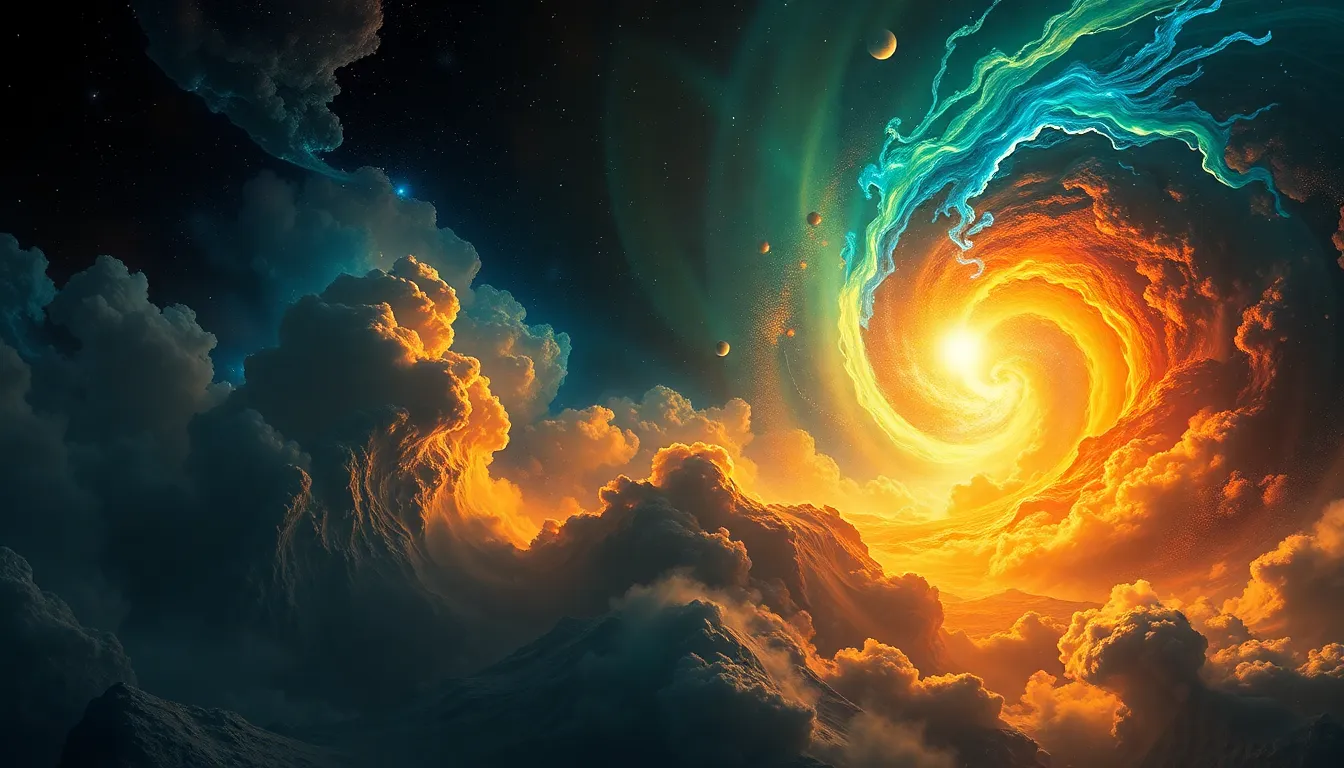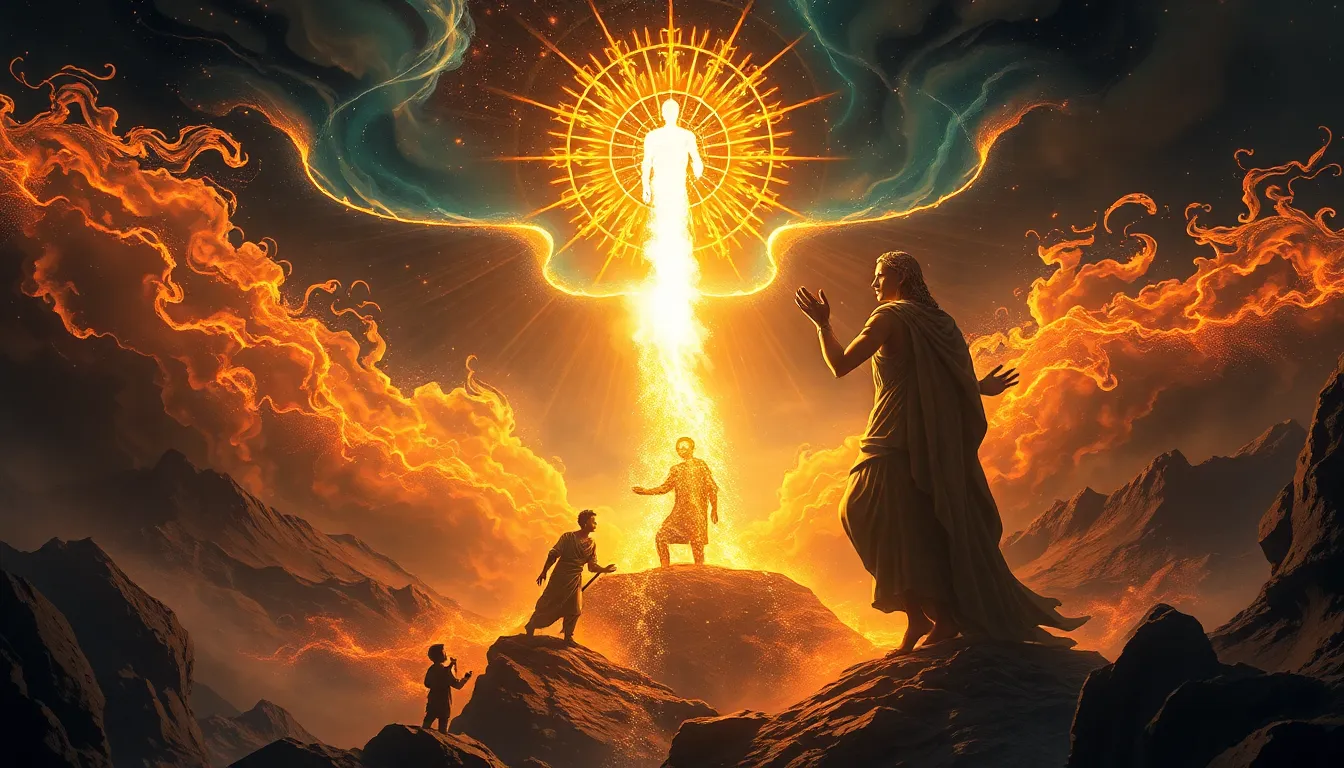The Divine Puzzle: How Creation Myths Piece Together Our Existence
Introduction: The Significance of Creation Myths
Creation myths are more than mere stories; they are foundational narratives that shape our understanding of the universe and our place within it. Across cultures, these myths provide context for existence, offering explanations for the origins of life, the cosmos, and humanity itself. From the ancient civilizations of Mesopotamia to the indigenous tribes of the Americas, these tales encapsulate the beliefs, values, and aspirations of societies. Understanding creation myths is crucial for appreciating the diverse frameworks through which human beings interpret their existence.
Defining Creation Myths: An Exploration of Concepts
A creation myth, or cosmogony, is a symbolic narrative of the beginning of the world and the origins of humanity. These myths often address profound questions about existence and purpose, reflecting the culture and environment from which they originate. Common themes and motifs include:
- Chaos and order
- Divine creation
- The emergence of life from formlessness
- Nature as a source of power
- Human beings’ relationship with the divine
Through these motifs, creation myths convey not only how the world came to be but also the values and morals of the societies that tell them.
Cultural Perspectives: A Global Survey of Creation Myths
Creation myths are found in every culture, each with its unique narrative and significance. Some notable examples include:
- Genesis: In the Judeo-Christian tradition, Genesis describes God creating the world in six days, culminating in the creation of humanity in His image.
- Enuma Elish: This Babylonian myth tells the story of the god Marduk defeating the chaos monster Tiamat and creating the world from her remains.
- Popol Vuh: The Mayan creation story details the gods’ attempts to create humanity, ultimately succeeding with maize-based beings.
While these narratives differ in specifics, they often share common themes, such as the battle between chaos and order, and the divine intention behind creation. Such similarities provide insights into universal human concerns and values.
The Role of Nature and Cosmology in Creation Narratives
Creation myths are deeply intertwined with the natural world. Many cultures view nature as a crucial player in their creation stories. For instance:
- In many indigenous cultures, natural elements like water, earth, and sky are seen as sacred and integral to the creation process.
- Cosmology plays a vital role, with celestial bodies often personified as gods or significant figures in the creation narrative.
This relationship between nature and creation highlights humanity’s connection to the environment, suggesting that understanding the cosmos is essential to understanding our origins.
Archetypes and Symbols: Unpacking the Language of Creation
Creation myths are rich in archetypes and symbols that convey deeper meanings. Key archetypes include:
- The Creator: Often depicted as a god or divine force responsible for the universe’s creation.
- The Chaos: Represents the primordial state before creation, often embodied by a monstrous figure.
- The Hero: A figure who often embarks on a journey to establish order or bring about creation.
Symbols such as light and darkness, water, and earth frequently appear in these narratives, each carrying specific interpretations and significance that resonate with the human experience.
Psychological and Sociological Implications of Creation Myths
The impact of creation myths extends beyond the narrative; they shape individual and collective identities. These myths influence:
- Personal beliefs about existence and purpose.
- Cultural values and ethical conduct within societies.
- Social cohesion, as shared narratives foster a sense of belonging and community.
Creation myths serve as a moral compass, guiding societies in their understanding of right and wrong, and offering frameworks for ethical behavior.
The Evolution of Creation Myths in the Modern World
In contemporary society, ancient creation myths are often reinterpreted. This evolution is influenced by:
- Scientific discoveries that challenge traditional narratives, such as the Big Bang theory and evolution.
- Globalization, which leads to a cross-pollination of myths and ideas.
- Technological advancements that reshape our understanding of existence and the universe.
Despite these changes, the core questions addressed by creation myths remain relevant, prompting individuals to seek meaning in a rapidly changing world.
Creation Myths and the Search for Meaning in Existence
Creation stories are not just historical accounts; they engage with philosophical inquiries into the nature of existence. They address existential questions such as:
- Why are we here?
- What is our purpose?
- What happens after death?
By exploring these narratives, individuals can find comfort and guidance in their search for meaning, reflecting on their place in the universe.
Interfaith Dialogue: Common Threads in Creation Myths
Creation myths can serve as a bridge for interfaith understanding, revealing shared themes across diverse religious traditions. Examples include:
- The concept of a creator deity is prevalent in many religions, fostering discussions about the nature of divinity.
- The duality of chaos and order can lead to dialogues about the human condition and the challenges of existence.
- Collaborative interpretations of myths can enhance mutual respect among different faiths.
Through these shared narratives, we can cultivate greater empathy and understanding among various cultures and religions.
Conclusion: The Continuing Relevance of Creation Myths
Creation myths hold enduring power in contemporary culture, inviting exploration and appreciation of the myriad narratives that shape our understanding of existence. As we navigate our modern world, these ancient stories continue to resonate, providing insight into our origins and connections to one another. By engaging with creation myths, we enrich our understanding of the human experience, embracing the diverse tapestries of belief that unite us in our search for meaning.



